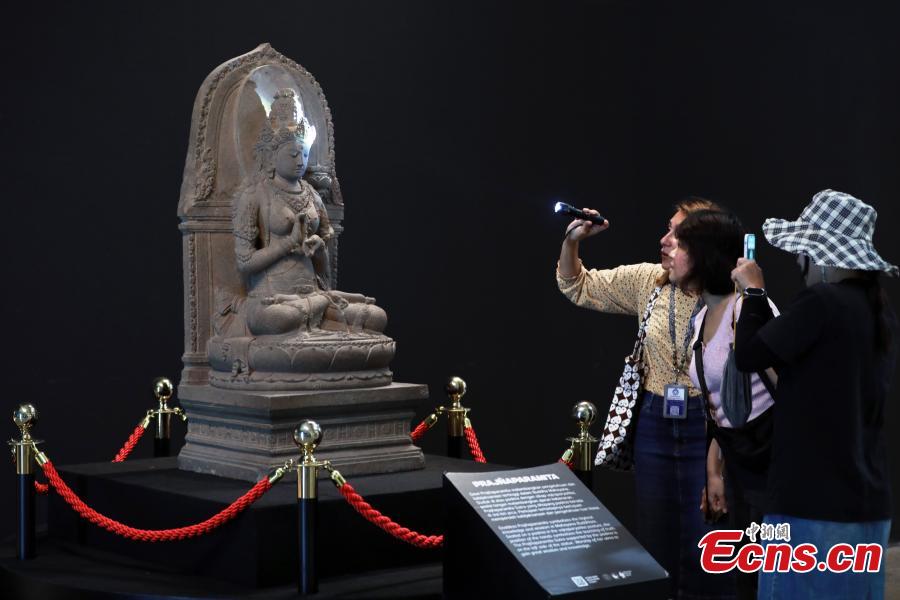
Five days ago – Oct 12 – marked two years to the day of my diagnosis. Even now, I struggle to comprehend all that has happened. How I returned to Singapore to start a new role and decided to get the lump in my breast checked.
How the breast lump turned out to be malignant and I was diagnosed with Stage 2A breast cancer. How I underwent two surgeries, one round of in-vitro fertilisation for embryo freezing, four rounds of chemotherapy and five rounds of radiation, before being put on a five-year adjuvant hormonal treatment. How during all of that, my husband and I moved into a new home; how I was laid off from my job and found another; how I shaved my hair and saw all the ways in which my body began to change.
How every day since Oct 12, 2022, I continue to navigate this liminal space of being a survivor – two whole years of living with the sceptre of this disease. I am texting my friend, S, who asks me how I am. I reply: “I feel a deep sense of nostalgia for all the lives I could have lived.
” My fingers pause over the keyboard as I try to place my feelings. “I believe,” I type, “that it is only now, that I have the space to truly confront my experience with cancer”. I continue typing in a flurry.
“When you’re young, you believe that bad things won’t happen to you, that there’s plenty of time before you must reckon with your mortality. And then disease happens , and all of a sudden, that innocence is gone. “So, there is a lot of grief, for all the ways in which my body has changed, for how it resembles that of someone much older even though I am in my prime years.
“The grief, is immense.” My fingers tremble as I type this. I pause and sit with my own words.
One of my biggest struggles since completing my treatment has been my repeated efforts to grow my hair out. When I shaved my hair after my first chemotherapy session, I remember thinking to myself that this would be the least of my worries. It will grow back, I reassured myself.
It will grow back. I underestimated how much my hair was tied to my notion of the feminine self. Seeing my bald head and then, grappling with a crew cut for months afterward, has been an interesting experiment in unpacking what it means to be a woman, and how I can continue to be true to myself, to honour my femininity, even if I was not presenting myself in a way that I had been conditioned to believe represented femininity.
I have been actively trying to grow my hair for about a year now. I say try, because I am impatient, and often, just as my hair grows a few inches longer, I get frustrated with its awkward length and trim it. My hairdresser, J, reminds me that I need to keep my eye on the prize.
You need to tahan (Malay for endure) the mess, she says. You need to tahan the mess to get to the length you want. I nod, laugh and write a daily reminder in my phone.
Tahan the mess. As a person of colour who already struggled with her sense of belonging in a country where most people do not look like her, the effects of my treatment feel two-fold, further intensifying my feelings of being othered. I don’t wear swimwear often, but when I do, you can see how the skin on one side of my chest is now markedly darker and drier than the other side.
On the flip side, I suppose I should be grateful that I have a chest at all, after everything that has happened. Therapy has been my lodestar through this unchartered, often baffling journey that is survivorship. It is where I come undone, throw tantrums, rant and rave about the world and my existence in it.
It is my safe space where I can tend to the tender, wounded parts, the bits of me that still cannot quite comprehend all that I have gone through these past two years. At therapy with V, I am ranting about how difficult everything is. Seemingly innocuous things trigger me, I say, and I am back at the drawing board.
Sometimes it’s a blood test result, sometimes it’s a number on the weighing scale, sometimes it’s the waking up at night and wondering when the cancer is going to come back. Why is this healing thing taking so long, I yell. I mean, just look at my dumb hair, even that is not growing as fast as I want it to! Why is nothing changing?! V is used to my yelling.
She lets the silence drag before pointing to the artwork that I have just completed. Look at that again, she says, and tell me that there is no change. For the past year, V and I have been slowly and systematically using art as a medium to help me reconnect with the tender, wounded parts of myself.
Today’s exercise is to draw how I present myself to the world. I stare at what I have painted – a shaman-looking woman, dressed in a skirt and blouse decorated with colourful fringes and tassels. She wears ornaments on her hands and neck; her feet are in bright red heels which are firmly planted on the brown and green of the earth.
On her face, makeup – bright lips, two spots of rouge, a blue pottu that, from a distance, looks like her third eye. She wears a blue crown with black diamonds on her head, and around her face, soft, fluffy curly hair, a brown cloud. Do you see what your art has captured, V asks.
You have drawn a woman who is unapologetic in taking up space. She is grounded and content. There is so much life and vitality in her, she is incandescent with it.
Look at this reflection of yourself on this page, V says. How can you think, then, that, nothing has changed? I nod, quietly. I am riveted by my own artwork.
Or maybe, I am riveted by who I am becoming. One of the things that very few people talk about when they talk about cancer is how much your body changes . When you’re on hormonal treatment and undergoing induced menopause, your body expands.
Fat appears in places you never had to reckon with before. Your waist thickens, the number on the scale keeps increasing. In a fat-phobic society like ours, this feels like added punishment.
As if cancer wasn’t enough. Now I must reckon with menopause and its weight gain as well? For the past few months, I have been struggling with exercise, which has been a hard blow. Even during my toughest chemo days, I managed to stay active – whether it was a walk on the treadmill or a pilates session.
Exercise has always been my anchor, keeping me grounded when I felt unsure about my body. It reminded me that, despite everything, my body could still function, perform, and move. Being inconsistent with exercise reflected my dipping mental health, and I knew that it would only do me more harm than good.
So, I made some changes to my exercise routine, and found a trainer whom I could work with. It has been a month now, and I have been consistent with my workout plan. At the end of our session together, my trainer shows me the statistics – in just one month, I have increased the volume that I am lifting and hit personal records in specific exercises.
Do you see this, she asks. Do you see this progress you’re making? I laugh and confess that I am not very good at celebrating my wins. I am happy though, I reply.
I did not think I could do these things, and now here I am. Yes, here you are, she says. And you’re not just doing these exercises, you’re smashing them.
I laugh again, surprised by how pleased I am with myself. There is a certain fondness in my laughter that takes me aback. I wonder, is this what it feels like to befriend yourself again? This survivorship phase of my life looks very much like my life before cancer, except perhaps busier and with more frequent contemplations of my mortality.
I am returning from a work trip from India. For the past month, I have been travelling around Asia for work. If you had told me that this would be my life two years after treatment, I would have scoffed at you.
Impossible, I would have said. My body would not be able to keep up with it. And yet, here I am.
I am sitting in the plane, and we are getting ready to take off. The lights are starting to dim, and for a few minutes, the plane feels warm, too warm. This triggers my hot flash, one of the more unsavoury side effects of having induced menopause in your early thirties.
I feel my heart rate spike and I start to perspire almost unnaturally. I rummage in the pocket of the seat in front of me and dig up the tissues I have kept there. I mop my face and force myself to take deep breaths, to regulate my heartbeat, which in turn will help to cool my body.
The whirring sound of the plane engine hides my deep inhalations and exhalations, and I am grateful for the darkness, for the privacy it affords me to deal with myself. Tahan the mess, I mutter to myself. Tahan the mess.
Often, when we think about survivorship, we think it to be the Happily Ever After epilogue of a sordid tale of sorrow and pain. Partly, it is that – there is tremendous joy and relief in being pain-free, in shedding the label of being an ill person in a world where wellness has become a moral virtue. But the unsaid story is how survivorship is often a grey, liminal space.
Life can never be the same again, because now, there is that added knowledge that the human existence is precarious, and our lives are not really in our control. Accepting that, phew, that’s a tough one. And yet, neither is cancer a finale to any story.
It is a chapter. It is part of some of our stories, and completely absent in others. All we can do, is make the best use of the time that we have, with the bodies that we are given, and keep going on.
And that, sometimes, involves having to tahan the mess. Read about Arathi Devandran's journey through breast cancer and into the other side here , where she makes sense of her experiences navigating the liminal spaces in life. CNA Women is a section on CNA Lifestyle that seeks to inform, empower and inspire the modern woman.
If you have women-related news, issues and ideas to share with us, email CNAWomen [at] mediacorp.com.sg .
.










